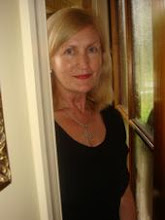A DISCOURSE ON THE NEW REALITY
“The world of reality has its limits; the world of imagination is boundless. Not being able to enlarge the one, let us contract the other: for it is from their difference alone that all the evils arise which render us really unhappy.”
--Jean Jacques Rousseau
Under the guise of expanding freedom, the current administration is using fear to oppress and manipulate the American public. The constant reality of security level increases in response to vague threats from an intangible enemy are used to secure votes for conservative issues and further a conservative economic agenda. The utility in using the threat far exceeds any benefit from resolving the threat. It wasn’t always this way. The U.S. has previously been threatened by enemies and crises at least as large as the current terror crisis, and visionary Presidents such as FDR and JFK were able to lead America back to security by identifying fear as an enemy instead of an ally, an obstacle instead of a tool.
My Mother was born one year into the blight of the Great Depression in rural Alabama. Her reality consisted of living in poverty and seeing the red dirt through the pine floor planks of her four room home. She took her poverty in stride, everyone did during those days. I asked my Mother one day what she feared while growing up, and without blinking she looked at me and said, “We feared only two things – mad dogs and snakes.” Of course, her reality ended where the mailbox met the dirt road she lived on. There was no 24/7 cable news, she never once had to endure an episode of “Survivor Somewhere”, and she didn’t have to relive “Pearl Harbor” on each anniversary of the attack blaring from her radio sitting on the kitchen counter.
The great depression gripped the country and the world in a crisis more threatening than the current war on terror. In his inaugural address on January 20th, 1933, Franklin Delano Roosevelt outlined his program for leading the nation and the world out of economic despair and cautioned against the repression of fear with the often quoted words, “The only thing we have to fear is fear itself.” FDR recognized that the emotional reaction to fear distorts objective problem solving and hinders true progress.
My three sisters and I are now compelled to learn more about our Mother’s childhood as we are nearing middle age; we try to make sense of the world around us and what reality has become. We are at a place where chaos and our own immortality force us to look to the past to understand and accept the future. Our children have known fear most of their lives. I have accepted the reality of fear, yet I resist accepting it as a way of life. Our reality was based on fear, but we had the imaginative humor of 1960’s sitcoms that offered a secure buffer from the fear of a nuclear attack. Where would we be today without the memories Father Knows Best or Leave It to Beaver? I have a friend who now teaches her two small children “real” morality from watching reruns of Little House On The Prairie. When I asked her why she replied, “there is no fear there in that safe little house.”
I try and go there, to my mother’s reality and it is difficult to comprehend such a simplistic world view, especially now in this age of the Bush “empire of fear”. Yet I can borrow from her reality and let my imagination go to that place if I try hard enough. I only hope my children have inherited some of my imagination. They are going to need it. As if it were that simple.
I have the memory of John F. Kennedy and Camelot. He was elected during an escalating cold war and under the threat of nuclear holocaust. He again cautioned against the bonds of fear during his inaugural address on a snow covered Washington day, January 20th, 1961 saying “So let us begin anew—remembering on both sides that civility is not a sign of weakness, and sincerity is always subject to proof. Let us never negotiate out of fear. But let us never fear to negotiate.”
The path forward, out of our current terror crisis, lies not in maintaining and reacting to fear, but in dispensing with fear and pursuing an objective dialogue, grounded in reality but fueled by imagination. So let us begin anew.
Monday, April 23, 2007
Subscribe to:
Comments (Atom)


